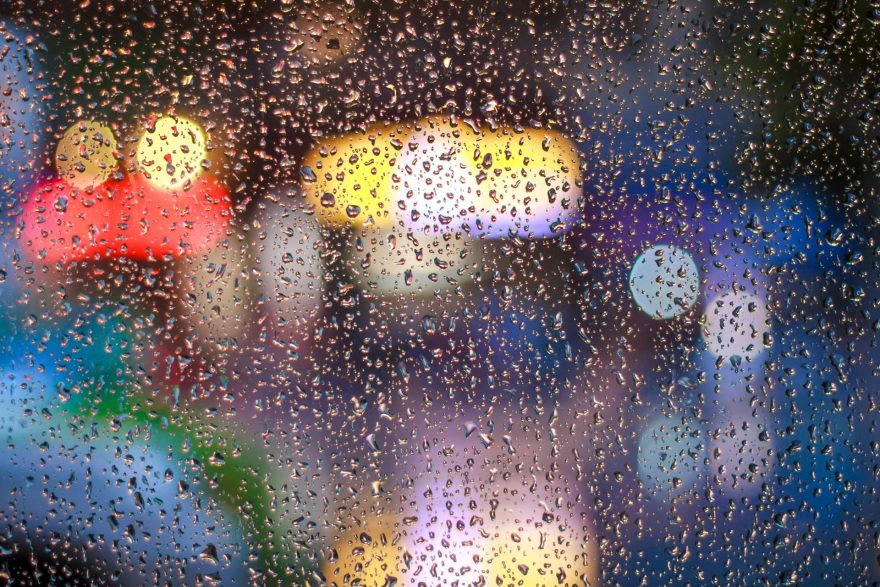The study suggests climate change has made ‘endless rain’ in the UK ten times more likely, and warns of more extreme future events without urgent carbon cuts.
A recent study revealed that heavy rainfall last autumn and winter in the UK and Ireland was ten times more likely and 20% more intense due to global warming caused by human activities. Between October and March, The area was hit by more than a dozen stormsThis caused severe flooding, damage to homes and infrastructure, and losses to agriculture. Experts warn that without urgent reductions in carbon emissions, these extreme events will become more frequent, occurring every three years.
The impact of climate change on rainfall in the United Kingdom
The endless rain that hit The UK and Ireland last fall and winter were directly linked to human-caused climate changeAccording to a recent study conducted by scientists from the World Weather Attribution (WWA) group. The analysis reveals that storms that struck the region between October and March made this period the second wettest in two centuries of records. These rains, which are now 20% more intense due to global warming, have caused severe flooding, killing at least 20 people, and causing severe flooding. Severe damage to infrastructure, homes and agricultural land.
The study suggests that if it were not for the climate crisis, the observed level of precipitation would be a once-in-50-year event. However, with Earth’s temperature has risen to 1.2 degrees Celsius in recent yearsThese heavy rain events are now expected to occur every five years. Worse still, if fossil fuel emissions are not reduced quickly and global temperatures reach 2°C in the coming decades, similar events could occur every three years.


Serious consequences and lack of preparedness
The torrential rains and subsequent floods left in their wake destruction in various forms. In addition to deaths and property damage, the storms caused power outages, travel cancellations, and significant losses of crops and livestock. A report by the Energy and Climate Intelligence Unit estimated losses to only arable crops in the UKThe heavy rains will cost farmers about £1.2 billion, compared to average production over the past decade.
Dr Mark McCarthy, a climate scientist at the UK Met Office and a member of the WWA team, stressed the urgent need to adapt infrastructure and policies to a changing climate. “In the future, We can expect an increase in these extreme events“It is therefore necessary to adapt and increase our resilience,” he added.
Vulnerability and social costs
The study highlights that the most vulnerable populations are the most affected by these extreme climate events. For example, some flooded homes have become unusable Dehumidifiers Due to high energy costs, many were unable to replace lost frozen foods During a power outage. According to Dr Eli Murtagh, climate adaptation officer at the British Red Cross, storms and floods have led to a 33% increase in climate-related insurance claims, reaching a record £573 million.
A large number of people, one in seven, do not have insurance, and Many of them cite inability to pay it as the main reason. This exposes the most disadvantaged groups to the devastating effects of climate change, increasing existing inequalities.


Call to action and proposed solutions
Scientists and climate experts were strongly criticized UK ministers because there are not enough plans to protect people from the effects of global warming. In July, experts rated the government’s latest climate adaptation plan as “very weak,” underscoring the need for more decisive and effective action.
Dr Frederic Otto, a climate scientist at Imperial College London and co-founder of WWA, was blunt in her assessment: “Climate change is already making our lives worse. Wetter winters flood farms and cancel football matchesIt overflows sewage systems and makes food more expensive. Otto urged replacing oil, gas and coal with cleaner and cheaper energy sources, as well as improving home insulation and restoring nature as necessary solutions.
The need for an urgent and effective response
The WWA study is a wake-up call to the urgent need to decisively address climate change. Implementing adaptation measures is crucial to mitigate the impacts of extreme climate events Which is already becoming more frequent and severe. The UK and Ireland must accelerate their efforts to reduce carbon emissions and better prepare their societies to meet these challenges.
Looking to the future, a combination of political action, technological innovation and public awareness will be essential to building a more resilient and sustainable future. Decisions made today will determine societies’ ability to adapt and thrive in an increasingly turbulent world. Because of climate change. Investing in resilient infrastructure, effective policies, and clean energy will not only protect vulnerable populations, but will also foster a more sustainable and fair economy for all.
